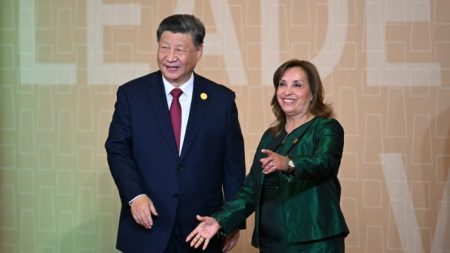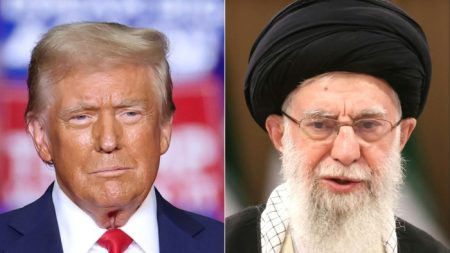Unlock the Editor’s Digest for free
Roula Khalaf, Editor of the FT, selects her favourite stories in this weekly newsletter.
Shigeru Ishiba will become the next prime minister of Japan after winning the presidency of the ruling Liberal Democratic party in a closely contested run-off vote on Friday.
As president of the LDP the 67-year-old former defence and agriculture minister, who has sought the leadership of his party five times, will succeed Fumio Kishida after a parliamentary vote on October 1.
Immediately after Ishiba’s victory was declared, the yen surged more than 1 per cent against the dollar on market perceptions that he would not resist efforts by the Bank of Japan to normalise monetary policy and to push ahead with interest rate increases.
Japanese equities had risen earlier on Friday amid expectations that one of Ishiba’s more market-friendly rivals would win. But Nikkei 225 futures slumped more than 3 per cent in the first hours of trading in Chicago, suggesting share prices could come under pressure when the Tokyo market reopens on Monday.
Ishiba, who has been a consistent hawk on China, has also bridled against what he sees as Japan’s structurally unequal alliance with the US. In recent years, he has proposed changes to the relationship, including shared access to US bases on Japanese soil.
Ishiba’s victory followed a highly unusual LDP leadership race contested by a record nine candidates. The competition was intensified by the party’s declaration this year that it was disbanding most of the factions that have historically controlled internal votes.
“Trusting in the people and speaking the truth with courage and sincerity, I will do my utmost to make this nation of Japan a safe and secure country where everyone can once again live with a smile,” Ishiba told an assembly of ruling party MPs after the result.

Ishiba will inherit an economy emerging from years of deflation, but facing the headwinds of an ageing and shrinking population. He said during the campaign that he favoured companies shouldering a greater part of the tax burden. At a press conference on Friday evening, Ishiba described the “great anxiety” of ordinary Japanese people and the need to ensure the country does not fall back into deflation.
Katsuhiko Aiba, chief economist at Citi, said the new prime minister’s economic policy was unlikely to be significantly different from that of Kishida. Ishiba would probably put together a new economic package aimed at combating higher prices and promoting wage hikes before the year-end, said Aiba.
An intellectual known widely as an otaku — or geek — for his interest in trains and military vehicles, Ishiba’s campaign proposals included the creation of an “Asian Nato” to counter the rise of China. He told the press conference that Japan “must play a proactive role in building peace in this region”, but gave few details of any specific plans to change Japanese security strategy.
Yu Uchiyama, a political scientist at Tokyo University, said the importance Ishiba placed on security meant he would continue Japan’s recent push to strengthen its military capabilities. “In one sense, Ishiba will probably be successful in presenting the image of change in the LDP. But faced with a changing world order, he will just take over Kishida’s defence policies, so there should be no significant difference there,” said Uchiyama.
As well as a stronger focus on revitalising Japan’s regions, Ishiba’s clearest break with his predecessor is likely to be the creation of a full ministry to handle disaster management in a country regularly hit by earthquakes and increasingly dealing with large-scale flooding and other extreme weather events.
During his long career in parliament, Ishiba has gained a reputation as an outspoken rebel unafraid of making enemies within his own party. In a brief speech to LDP members ahead of vote counting on Friday, he apologised for the “unpleasant experiences” he had caused over the years.
Ishiba’s victory came at the expense of Sanae Takaichi, a hardline conservative whom he beat in a second-round run-off on Friday. LDP MPs and party representatives from Japan’s 47 prefectures voted.
Takaichi received 194 votes to Ishiba’s 215, narrowly missing the chance to become Japan’s first female prime minister.
Earlier in the day, the first round of voting had eliminated Shinjiro Koizumi, the son of former prime minister Junichiro Koizumi, who would have become Japan’s youngest prime minister. Hours before the votes were counted, Koizumi remained the narrow favourite among political analysts.
Ishiba, whose father was governor of Tottori prefecture and later home affairs minister, entered politics after a brief career in banking. He entered parliament at the age of 29 in 1986, making him Japan’s youngest-ever lower-house member at the time.
Read the full article here












